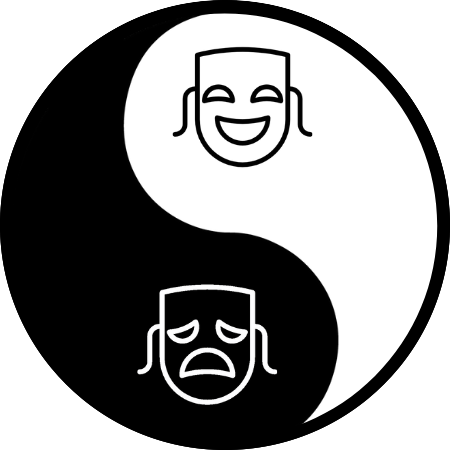What Story Do You Want To Hear?
Imagine it's a Saturday morning. Your alarm is going off, you reach for your phone to shut the damn thing up — and have a cheeky AM scroll through the 'Gram.
You spot a post about an unknown talent who's just booked the biggest, juiciest, and most coveted gig of the decade. Tens of thousands of people self-taped for the part — you did too, in fact — and yet it's come to this actor. This actor who'll now be taking on the role and journey of a lifetime. This actor whose life and career are about to change forever.
Take a beat.
Now consider which of the following stories your ego would want to hear about this actor. Would your honest preference be:
a) They were born this way. They've been consistently booking jobs since they were five.
b) They epitomise the definition of an "overnight success". It was their first audition and all.
c) They swear by their systems. They've been intentionally refining their craft for 10+ years.
Answer: a
We might experience this in our body as jealousy.
Answering a may indicate the presence of "fixed mindset" thinking. Popularised by Stanford University psychologist Carol Dweck[1], this term describes the view that our traits (intelligence, personality, talents etc.) are unchangeable. Historically reinforced by Western society, most of us have at least some residue of this thinking.
The downside to this mindset is that it doesn't allow space for growth and evolution. It limits us exclusively to the hand of cards we were dealt at birth, cutting us off from the possibility of fulfilling all we might become. If we weren't born with this actor's royal flush, why bother?
Answer: b
We might experience this in our body as resentment.
Answering b may suggest a relinquishing of power — however large or small — to luck and chance. While there's inevitably a percentage of magic behind every success story, we do ourselves a great disservice overestimating what this percentage may be.
The downside to this mindset is that it acquits us of taking full responsibility. For instance, if we believe luck accounts for 70% of success, and further, we believe we have bad luck, we throw away almost three-quarters of our control before we even start. And in an industry like ours, that 70% could be put to far better use.
Answer: c
We might experience this in our body as guilt.
Answering c may hint at a recognition that we could be doing more. We might already be doing some work — maybe even more than most — but deep down we acknowledge that if we really, truly wanted success right now, we'd need to up our game. After all, sustained success is just a better set of actions.
The downside to this mindset is that there are no excuses. It reminds us our potential for success lies squarely in our own hands. If this actor has risen through their intention, discipline, and commitment, we can too. Yes, nature and fortune play their part, but they aren't given centre stage. That spot's ours.
Rewriting the script
Peyton Manning, considered one of the best football quarterbacks of all time, says, "The attitude with which we approach the situation can determine our success or failure."[2]
The point of this thought experiment is to recognise that any one of the above is an absolutely valid response. And that being so, we realise our ability to choose another equally valid response — should we desire. If our current narrative isn't serving us, we can decide to test drive a more empowering alternative.
Should Manning's statement be correct (and there's a lot of science supporting him on this), making our mindset an ally is then an extremely high-leverage move. Yet, one we can make while scrolling Instagram in bed on a Saturday morning.

Thoughts / feedback / challenges? We'd genuinely love to hear.
Need some 1-On-1 attention? Book your coaching session today.
Citations:
